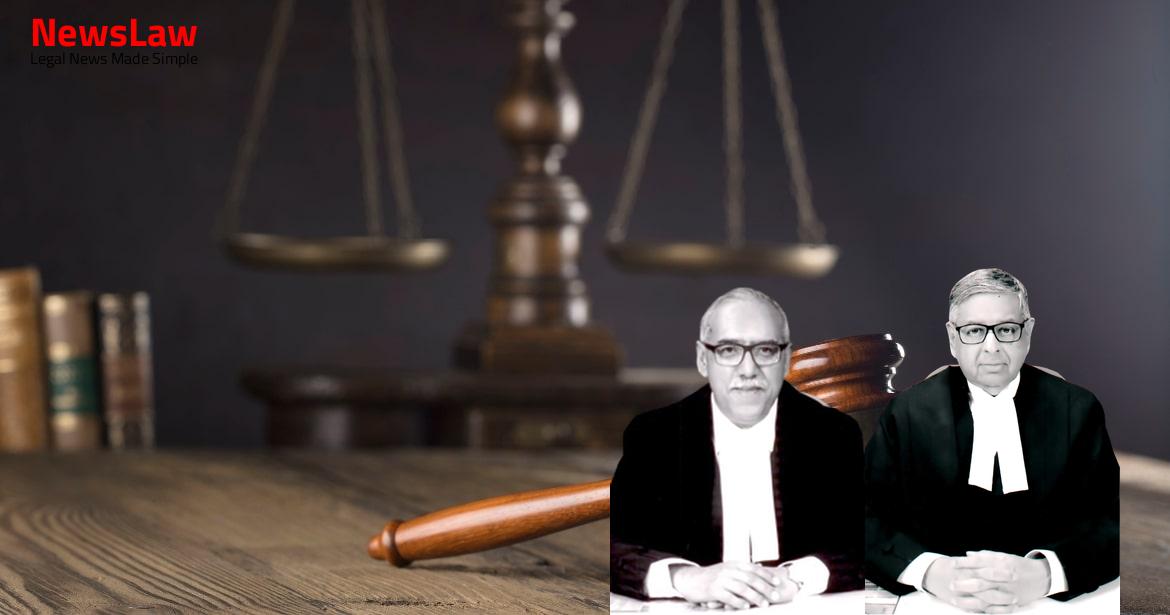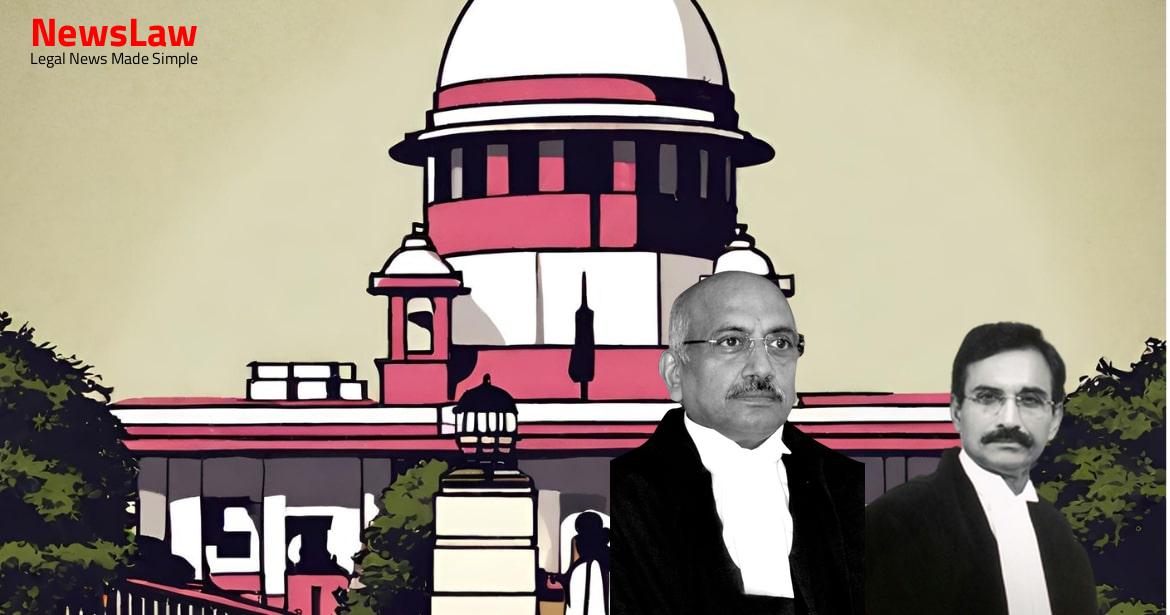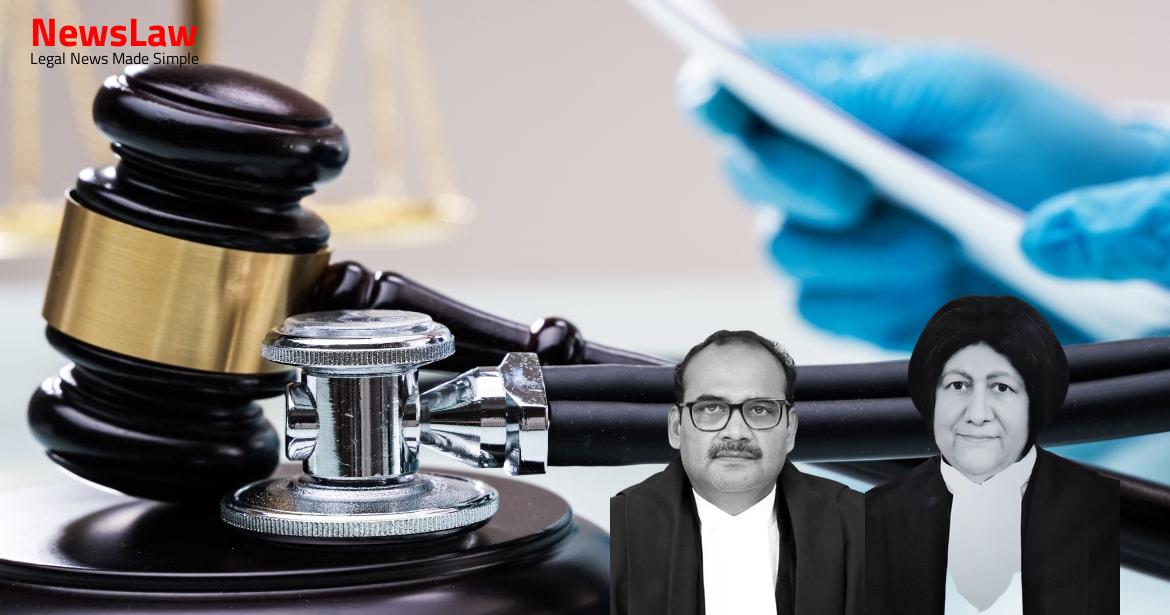In a significant legal development concerning the management of the Gurudwara in village Pilkhani, the Supreme Court has upheld the judgment made in the case. The dispute involved the committee set up following Tarlok Singh’s passing, with allegations against his son for improper management. The Court’s decision maintains the integrity of the original judgment, ensuring the rights and obligations of the parties are protected.
Facts
- Plaintiffs set up a committee to manage the Gurudwara after the death of Tarlok Singh.
- Plaintiff No.1 was the President, Plaintiff No.2 was the Secretary, and Plaintiff Nos. 3, 4, and 5 were members of the Managing Committee.
- Allegations were made against Tarlok Singh’s son for improper management of the Gurudwara.
- The Gurudwara is described as a place of public worship with free public access.
- A suit was filed by the respondents regarding the Gurudwara in village Pilkhani Tehsil and District Ambala.
- Defendant No.2’s (Bhupinder Singh’s father) was mentioned as the Mohtmim of the Gurudwara.
Also Read: Enforcement of Foreign Award: Case of Oscar Investments Limited and RHC Holding Private Limited
Arguments
- The appellant claimed that the Gurudwara was a private property originally owned by his father and now by him.
- It was argued that the public did not have the right to access the Gurudwara.
- The appellant contended that the suit under Section 92 was not maintainable in this case.
- An application seeking leave of the Court to file the suit under Section 92 was submitted, but no orders were passed on it.
- Leave must be granted before the suit is instituted.
- The law laid down by the Court dictates the necessity of obtaining leave prior to filing the suit.
Also Read: Maintenance Rights of Divorced Women: Reconsideration Plea by Mr. Debal Banerjee
Analysis
- Section 92, CPC allows for a suit to be filed by the Advocate General or by two or more persons with an interest in the trust.
- Those filing the suit must obtain the leave of the Court before proceeding.
- The provision is clear in its requirement for either the Advocate General or interested parties to seek court permission before initiating a suit.
- Grant of leave is a necessary pre-requisite before a suit under Section 92, CPC can be entertained.
- Appellant was aware of the provision regarding grant of leave due to a previous suit dismissal on similar grounds.
- The appellant did not raise the defense of leave not being granted in the current litigation even though the Gurudwara is a public place of worship.
- Both parties led evidence and the matter was decided on merits without the defense of leave not being granted.
- In Section 92, CPC cases, a notice should be issued to the other side before granting leave, but it is not mandatory.
- There can be no presumption of leave being granted in such cases, it must be explicitly obtained.
- In every suit filed under Section 92, CPC, the grant of leave is necessary for proper institution.
- In R.M. Narayana’s case, the Court made the following key points
- Emphasized the importance of maintaining the independence of the judiciary
- Stressed on the need for judges to uphold the integrity and impartiality of the judicial system
- Highlighted the significance of ensuring a fair trial and upholding the rule of law
- Reiterated the judiciary’s duty to protect the rights and liberties of the citizens
- Underlined the responsibility of judges to act in a manner that upholds public confidence in the judiciary
- About 14 kanals of land was donated by the villagers to the Gurudwara.
- The appellant admitted to this fact in cross-examination.
- The Gurudwara is considered a public Gurudwara.
- The Trial Court framed a proper scheme for the management of the Gurudwara.
- The elected body consists of people belonging to the village.
Also Read: Case of Eligibility for Disability Pension: Air Force Officer’s Retirement
Decision
- The civil appeal was dismissed as the original judgment was upheld.
- The decision of the lower court was found to be valid and the appeal was therefore rejected.
- All arguments presented by the appellant were considered but not deemed sufficient to overturn the original decision.
- The rights and obligations of the parties involved were preserved according to the original judgment.
Case Title: BHUPINDER SINGH Vs. JOGINDER SINGH(D) BY LRS.
Case Number: C.A. No.-006067-006067 / 2010



